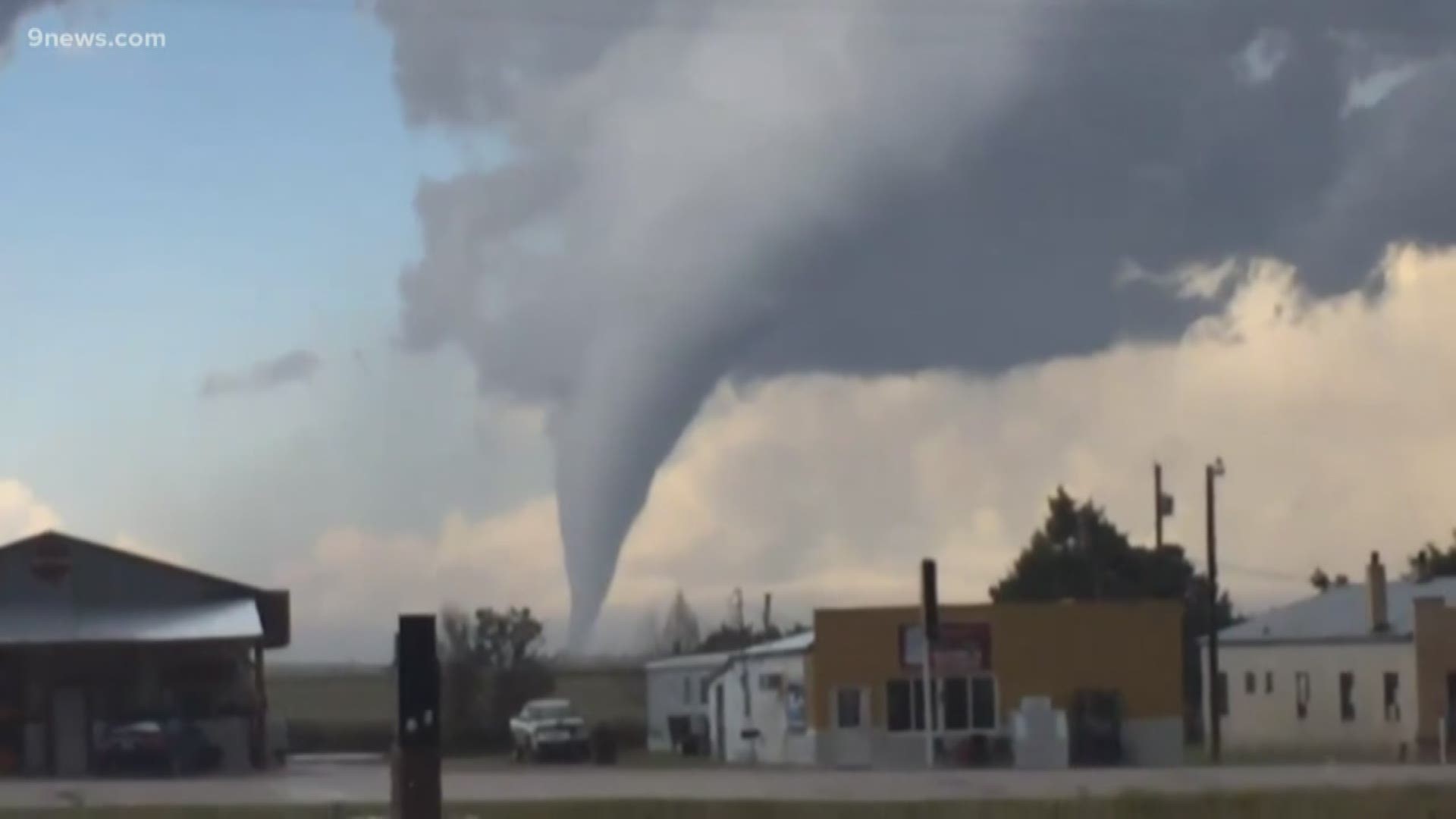DENVER — Destructive and deadly tornadoes swept across Tennessee late Monday night into Tuesday morning. A preliminary investigation by the National Weather Service (NWS) in Nashville estimates 155-165 mph winds were possible with a couple of those tornadoes, with EF-3 damage ratings. It is still possible for those to be elevated to EF-4 after a more complete survey.
With the destruction left by those deadly tornadoes, some are asking if the same could happen in Colorado.
The Warning
For tornadoes that size, there is an average of just 15 minutes of warning. But in this case, tornadoes were in the forecast long before nightfall.
The Storm Prediction Center placed the Nashville area in a slight risk for severe weather, including tornadoes, more than 24 hours prior to the event.
NWS Nashville issued the first tornado warning on the supercell that produced the tornadoes in the Nashville area at 11:13 p.m. local time. The storm was about 70 miles west of the city at the time.
That tornado warning was reissued for that storm cell at 11:40 p.m. Then at 12:35 a.m., a third tornado warning was issued on that cell, but this was the first warning that included the city of Nashville in the warning polygon.
Six minutes later, emergency managers reported a tornado touchdown in east Nashville.
Nocturnal Tornadoes
Six to 15 minutes is not a lot of time to react to a tornado warning, especially if you are asleep when the warning comes out, but a plan can be made if you are aware that severe weather is in the forecast.
“Keep the phone close to your bed, because if the National Weather Service issues a tornado warning, it’s going to ring automatically with those wireless emergency alerts and hopefully wake you up out of your sleep,” said Paul Schlatter, a meteorologist with NWS Boulder.
Schlatter is one of the meteorologists that issued tornado warnings for our area in northeast Colorado. He said that large nocturnal tornadoes are very rare in our state.
There have been 23 large EF-3 tornadoes in Colorado since record-keeping began in 1950. Only one of those happened after dark.
The reason: The air in Colorado is too dry. We rely on daytime heating to distribute the moisture. When the sun sets, the air near the surface here cools rapidly.
“That inversion gets really deep in Colorado which suppresses most convection after dark,” said Schlatter. "In a place like Tennessee and other areas closer to the moisture from the Gulf of Mexico, it's common to get tornadoes at all hours of the day."
Metro Tornadoes
The tornado that hit Nashville was in a densely populated part of the metro area.
You don’t hear about large tornadoes hitting metro areas too often, but Schlatter said there’s nothing special protecting cities from tornadoes other than luck.
There is a unique circumstance however with our city.
“Denver itself, the west side of town is a little bit protected from tornadoes versus the eastern part of the metro,” Schlatter said.
The reason again is moisture. He said there is usually more dry air right at the base of the Rocky Mountains. Nearly 90% of Colorado tornadoes hit east of Interstate 25.
There hasn’t been a large tornado in Denver since 1988, but they have been very close in recent years.
An EF-3 tornado hit the Berthoud-Longmont area in 2015, and the EF-3 Windsor tornado was in 2008.
Schlatter said that even though the chance of a large tornado hitting the Denver metro remains very low, the odds are on the rise.
“With more people in our area, and the metro area has really expanded out eastward and northward, the chances of it getting hit by an EF-3 is greater than it ever has been,” Schlatter said.
SUGGESTED VIDEOS | Science is cool

